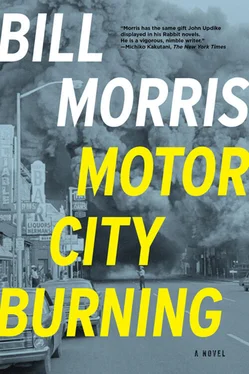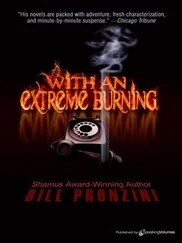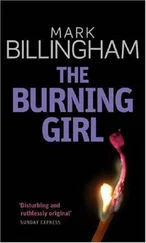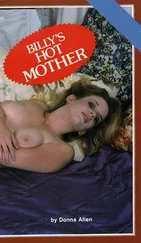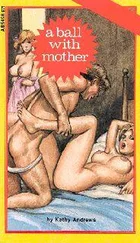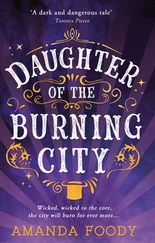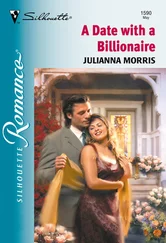So they followed at a distance as Clyde and his buddy walked down the switchbacks with Bledsoe and the girl. The group finally broke up out on Trumbull, and the detectives followed Bledsoe and the girl back to Plum Street. They held hands the whole way. Too bad if tonight was going to be their first time, Jimmy was thinking, as Doyle called out, “Mr. Bledsoe!”
“Gentlemen?” Bledsoe said, turning, not yet realizing the two men were police.
They showed him their shields and half of his cockiness disappeared.
“We’d like to ask you a few questions, Mr. Bledsoe,” Doyle said. “Would you mind coming with us?”
“Right now? But—”
“Right now.”
“Where we going?”
“Downtown.”
“What for, exactly?”
“We’ll tell you when we get there,” Jimmy said.
Bledsoe was looking at Doyle, looking him in the eye like they were old buddies who hadn’t seen each other in a long time. “What took you so long?” Bledsoe said.
“Sir?”
“What took you so long? All the places you been following me, all the hours you spent camped outside my apartment — and hers — in that old Pontiac of yours. Why didn’t you just knock on my door and save everyone a lot of trouble?”
The girl said, “Will someone please tell me what the hell’s goin on here?”
“Please come with us, Mr. Bledsoe,” Jimmy said, stepping closer.
“My pleasure.” A chubby woman had come out of the hippie house and was standing on the front porch, taking in the scene. Bledsoe called to her, “Hey, Sunshine, can my friend use your phone to call a cab?”
“Sure, Willie.”
Bledsoe took a $20 bill out of his wallet and gave it to the bewildered girl for cab fare. He kissed her and told her he’d see her at her place as soon as he got this cleared up. Then he fell in between the detectives, walking toward the Plymouth with a bounce in his stride that neither of them liked one bit.

The dance in the yellow room began slowly, the way Doyle had planned it. With Jimmy, Sgt. Schroeder and half a dozen detectives watching from the hallway, Doyle offered cigarettes, coffee, soft drinks. Bledsoe didn’t want anything. He seemed relaxed. Didn’t ask for a telephone or a lawyer, didn’t even need to use the bathroom.
Doyle promised he would make this as quick and painless as possible and would do everything in his power to keep his bloodthirsty partner at bay — provided Bledsoe gave him straight answers. Bledsoe nodded. Doyle opened by expressing amazement at how Oakland had managed to piss that ballgame away, and Bledsoe jumped on this, obviously glad to talk about anything but the thing they had brought him here to talk about. Then Doyle asked Bledsoe about his job at Oakland Hills, his Uncle Bob, just letting him know he knew things. Finally Doyle said, “What’s with that farmer get-up you wear to the library sometimes?”
“That’s what we use to wear when I was with Snick down South.”
“Ahh.” Doyle guessed Snick had something to do with Bledsoe’s civil rights work. Which made this a good time to ask, “How’s your book coming along?”
There was no surprise on Bledsoe’s face. He said, “Real well, thanks. I just found out that Ebony magazine’s going to run six chapters of it — like a serial — starting in December.”
“Congratulations.”
“Thanks.” He said it sincerely, with no false pride.
Doyle began to circle closer. “That musta been rough when they picked you and your buddy Walter Mitchell up during the riot.”
There was a slight pause, nothing serious. “Guess you heard about that at the fish shack in Algonac.”
“That’s right. There and in the arrest records.”
“Me and my big mouth. Yeah, it was pretty rough, all right.”
“That garage still stinks.”
“I don’t doubt it. I’ve smelled worse though.”
“Where at — Mississippi or Alabama?”
There was no hesitation this time. “Mississippi’s definitely got the worst jails. I believe those crackers are proud of it.”
Doyle wanted to keep him off balance. “Heard from your brother lately?”
“Which one?”
Nice try. “The only one you got. Wes.”
“Yeah, we talked on the phone a couple days ago.”
“I understand Wes was quite the war hero.”
“Yeah, to hear him tell it he killed a couple hundred Viet Cong with his bare hands — then cut off their balls and sewed ’em in their mouth.”
“That must hurt.”
“You know it’s got to.” Bledsoe was smiling, as cocky as he’d been back on Plum Street. Doyle wanted to make that smile go away.
“Did Wes have a good time while he was in Oakland?”
Another pause as the smile vanished and the eyes darted. Then came the falsely cool reply: “He didn’t say much about it one way or the other, to tell you the truth.”
“Any idea what he was doing out there?”
“Probably selling guns to the Panthers. Isn’t that what all the niggers are doing in Oakland these days?”
Doyle was impressed. This was, indeed, a worthy adversary. It was time to find out just how worthy. Doyle reached under his chair and took a bulky reel-to-reel tape recorder out of a box and set it on the table. “Got something I want to play for you, Willie.”
“I dig ’Trane and Miles.”
“No shit. Me too. You checked out ‘Round About Midnight’ yet?”
“Picked it up last week. I think it’s the best thing Miles’s ever done.”
“I agree. Well, this isn’t exactly jazz, but see if it doesn’t sound familiar.” Doyle switched on the tape.
“Where you been, bruh? Been tryin to reach you all damn day long,” boomed the drunken voice of Wes Bledsoe.
“I been out. What up?”
Bledsoe waved a hand and Doyle shut off the tape. “You don’t need to play the rest of that,” Bledsoe said. “I already had that conversation. I know how it turns out. That an F.B.I. tape?”
“Maybe.”
“Maybe, as in definitely. We got schooled on all that COINTELPRO wiretap shit when I was with Snick. At the time I thought it was just a buncha brothers being paranoid. Naive me, as usual. One thing they taught us is that those tapes aren’t admissible in court. They’re just one a J. Edgar Hoover’s sick little hobbies. Besides, my brother’s in Saigon by now, or Bangkok. You gonna go over there and bring him in for questioning too?”
“Maybe. But I don’t think we’ll need to. Since you don’t want to listen to the tape, let me refresh your memory.” Doyle reached into his files and took out a typed transcript of the tape recording. “You said to your brother, quote, ‘You remember those three guns from the roof of your building, that night during the riot?’ Unquote. Which three guns were you talking about?”
Again he didn’t hesitate, like he was ready for the question. “The three guns my brother took up on the roof.”
“Why’d he take three guns up there?”
“Cause he got beat half to death by some cops at the Algiers Motel and he wanted to see if he could shoot him a cop.”
“Did he?”
“I got no idea.”
“Did he try?”
“He fired, I don’t know, half a dozen rounds. But he was pretty messed up from the beating — plus he was drinking. Tell you the truth, I don’t think he coulda hit Ford Hospital.”
“Were you on the roof with him?”
“Yeah.”
“Why’d you go up there?”
“I wanted to keep an eye on him, make sure he didn’t fall off the roof or shoot himself. Like I say, he was pretty messed up.”
“You fire any of the guns?”
“Nosir.”
“Not even once?”
Читать дальше
